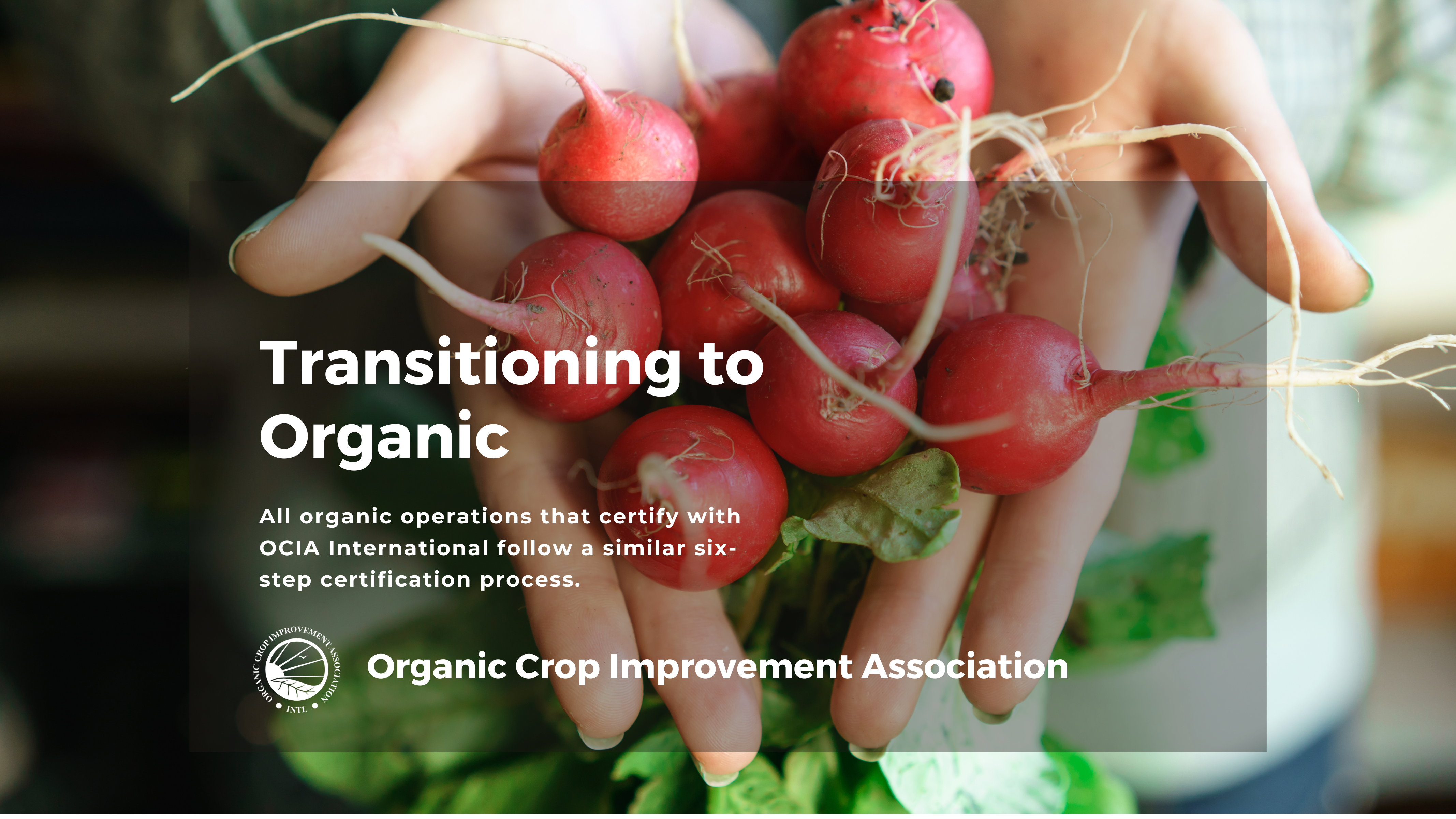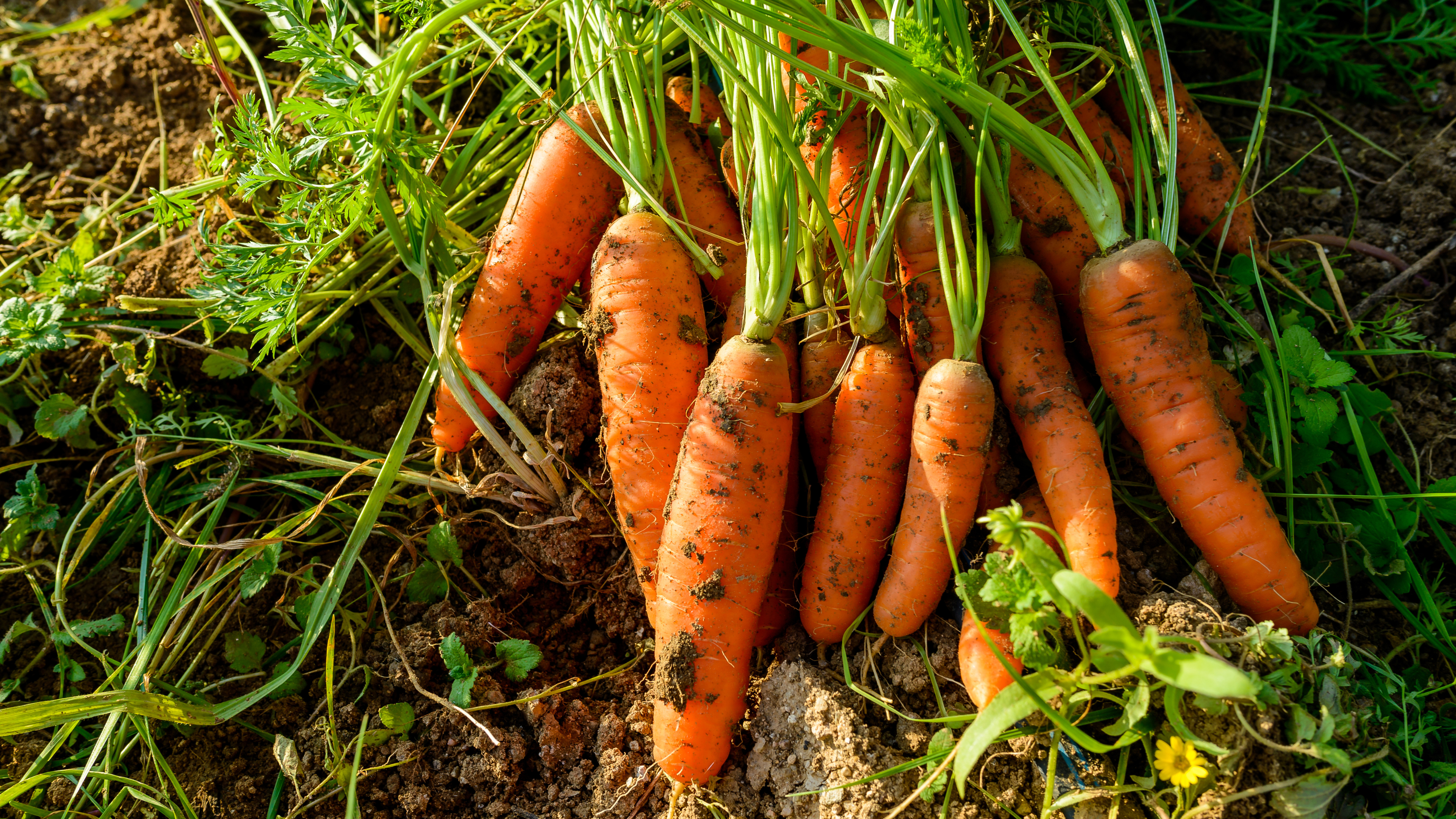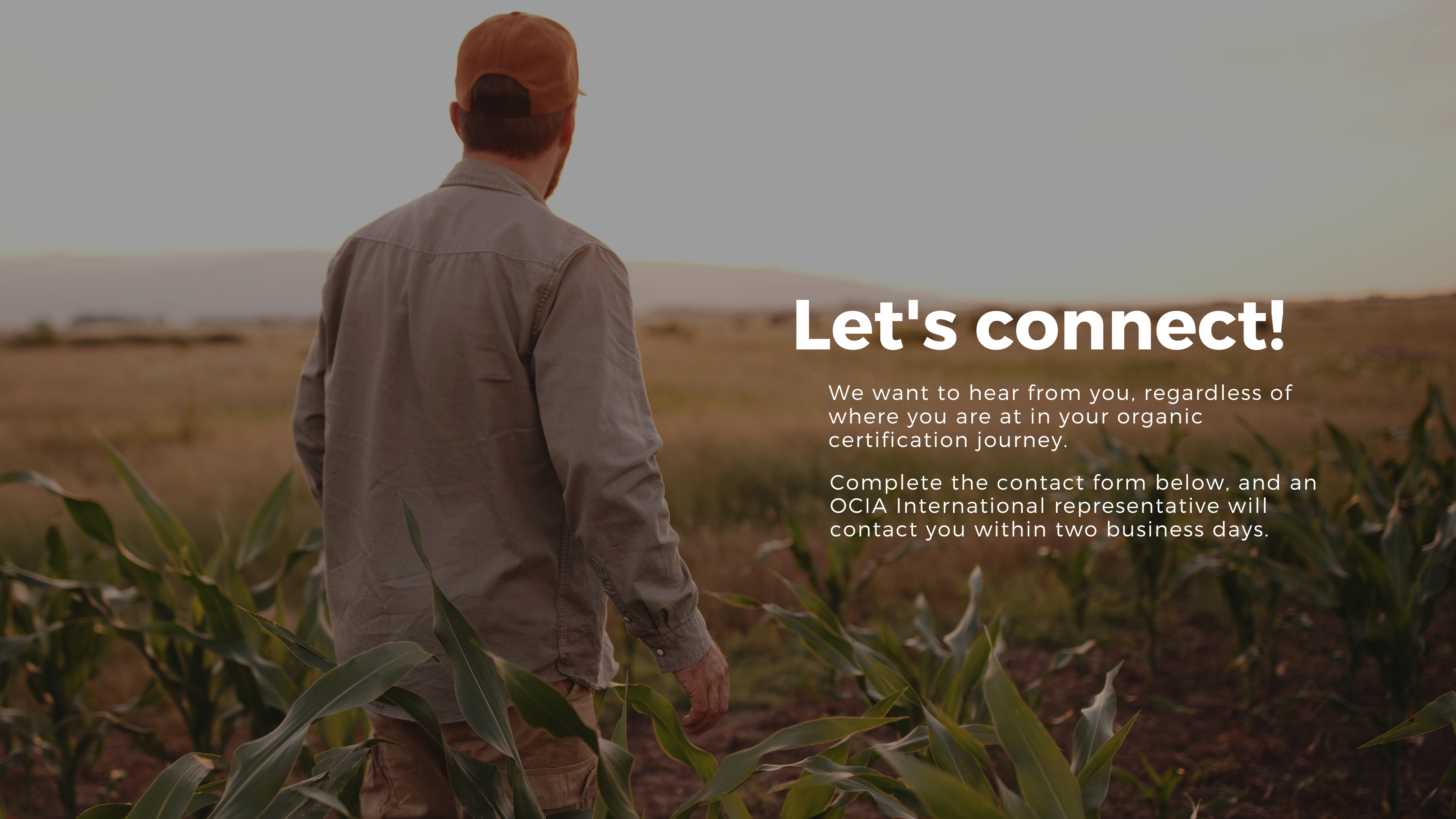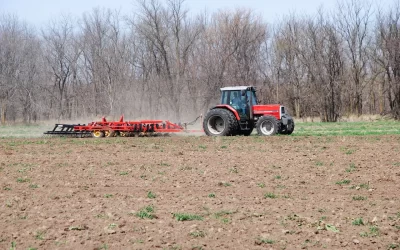
Transition to Organic: The Certification Process
There has never been a better time to transition a conventional agricultural operation to organic. Despite a challenging economy, the organic market continues to see robust year after year. Why? Consumers have more access to information than ever. They want safe, tasteful food produced in an environmentally sustainable manner.
Below, you’ll find information about the transition process. If you have questions, reach out using the contact form at the bottom of this page! You don’t have to transition your operation alone, because OCIA International is here to support you every step of the way.

Transition to
Organic
Transitioning your conventional operation to an organic operation can be an intimidating process.
We’re here to demystify the process, so you can confidently tackle whatever challenges lie ahead.
Adopt Organic Practices
Consult the National List to ensure you no longer use prohibited substances. Remember that, in general, organic regulations prohibit the use of synthetic fertilizers, herbicides, and pesticides for crops, and prohibit the use of antibiotics in livestock.
Submit Application
Create an Organic System Plan (OSP) and submit with application and fees to OCIA International certifying agent. You can find organic regulations for the United States Department of Agriculture (USDA), Canadian Organic Regime (COR), Japan Agricutural Standards and more HERE.
Application Review
After receiving your application, one of our certifying agents will verify the information included in your application is sufficient and that your practices comply with regulations.
Inspection
An inspector will complete an on-site inspection to confirm accuracy of your submitted OSP and compliance with regulations. It is helpful to have record keeping documents, maps, etc. easily available to ensure a smooth inspection.
Review
After your inspection, one of our certifying agents reviews both your application and the inspector’s report to ensure your operation complies with organic regulations.
Certification
If your operation meets all organic regulations, a certifying agent will issue an organic certificate. Congragulations! Continued certification requires the annual submission of an updated Organic System Plan (OSP) and an annual inspection.
Please note that organic certification regulations require the following:
-
-
- A three-year transition period is required for non-organic crop operations. During the transition period, the operation must refrain from using prohibited inputs like prohibited fertilizers and pesticides.
- Livestock must be raised organically from the third trimester of gestations.
- Poultry must be raised organically beginning the second day of life.
- Dairy animals must be raised organically for at least one year before milk and milk products may be sold as organic.
-
The transition to organic can be overhwelming. Learn more about organic practices and the organic journeys of OCIA organic operators below.
Healthy Soil: The foundation of organic farming
If you’re transitioning your conventional farm to organic, you might be wondering where exactly to start. Taking those first tentative steps into the world of organics can be overwhelming, and it’s all too easy to get lost in a mountain of information. Having a solid foundation for your operation is key.
Jack Geiger: Crisis leads to innovation
The 1980s were not kind to family farms. A decade before, strong national and international economies led to ideal economic conditions for farmers. Farmers took advantage of international markets clambering for American produced food, selling their crops with relative ease.
Ryan Albinger: Parallel Production
Ryan Albinger initially transitioned his entire operation to organic. However, as his farm grew, his needs changed, and he decided to farm newly acquired parcels of land using conventional methods. Parallel organic and conventional production methods, Albinger argues, offer economic and social benefits.

Contact us today! -- OCIA Contact Form
OCIA International main contact form.



